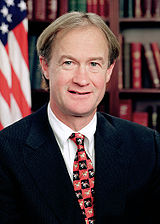http://youtu.be/v1uyQZNg2vE
When I first read about Google’s new product, Google Glass, the Human Resources manager in me thought “Holy crap!”
See, I didn’t see a pair of glasses with access to the web or the ability to take pictures or video. I saw a total surveillance system recording daily interactions in the workplace. Just think for a moment about the effect such a system would have in sexual harassment cases, or teacher discipline, or allegations of police brutality.
Picture the husband about to beat his wife as she looks at him through her glasses. Even a barked threat to her to take them off becomes a recorded piece of evidence of the truth in a situation, especially if the glasses are uploading the images and therefore destroying the glasses does not eliminate the recording.
Ah, says you, but people are smarter than that. People won’t say or do things if they are being recorded. But that’s the point. Not if they are being recorded, but if they think they are being recorded. What will be the effect of potentially living in a Total Surveillance Society?
Consider the scenario five years from now, when the technology is widespread, and Google and their competitors have partnered with fashionable glass manufacturers and shrunk the technology even further, when you no longer know whether the person you are talking to is actually wearing Google Glass. Yes, companies will have protocols about people having their glasses “on” but the reality will be that someone summoned to meet the head of HR or their boss will want to record it.
Indeed, given that people have a right to a witness for meeting like this, I would have thought a judge would endorse the right to have your glasses operational at meetings of that nature. Now, it’s true, people could be recording these meeting on their smart phones now, but even that’s not the same. Knowing that what you are saying to a criminal suspect or a student or an employee could be uploaded as a piece of footage within minutes of you saying it will radically change behaviour, or destroy those who don’t change theirs.
In short, this has the potential to be a massive social game-changer.




